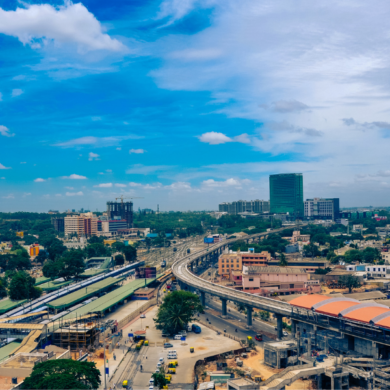
Buying your first home is exciting, but even small errors can lead to big regrets. This guide helps you avoid common first-time homebuyer mistakes and take confident, informed decisions.
Buying your first home could get overwhelming, as the process is filled with significant decisions that can impact your financial future. First-time homebuyer mistakes can lead to unnecessary stress, unexpected costs, and avoidable regrets.
Taking informed decisions at every stage of the process can save money and ensure you are making the right investment. This blog walks you through the most common first-time homebuyer mistakes, and tips on avoiding them – helping you make a smooth and right property purchase.
Table of Contents
15 Mistakes to Avoid While Buying Your First Home
This exciting milestone can become a risky proposition, if you ignore any of these possible mistakes. While purchasing your dream home, avoid these unnecessary setbacks and stay well-informed throughout the process. Described below are 15 common mistakes first-time homebuyers should avoid, to make their journey smoother and more successful.
1. Not Getting Pre-approved for Home Loan
A very common first-time homebuyer mistake is failing to get pre-approval for home loan. Though frequently ignored, this accelerates your final approval process once you have chosen a property. Since the lender has already evaluated your financial background, much of the paperwork and assessment work is already done.
This means the time taken to approve your loan is significantly reduced, allowing you to quickly move forward with your home purchase.
2. Ignoring Additional Costs Beyond EMI
In addition to your down payment and EMIs, there are many other expenses to consider – such as stamp duty, registration charges, interior design, monthly maintenance, annual property tax, home insurance, and more.
First-time homebuyer mistakes involve ignoring these additional costs of purchasing a home. Additionally, costs for home repairs or renovations can arise unexpectedly. It is better to be prepared for such expenses, if the home is not new.
3. Skipping the Home Inspection
This process can help you identify hidden issues such as structural damage, plumbing problems, or faulty wiring. If left unnoticed, these problems can lead to various inconveniences due to electricity issues and plumbing – costing time, money, and efforts down the road.
It is better to invest in a professional inspection and work out repairs with the developer, rather than skip it and face unexpected costs after the purchase.
4. Not Researching the Neighbourhood
The location of your new home plays a very important role in your overall experience and the property’s future value. Proximity to offices, tech parks, educational & healthcare institutions, and transport hubs – apart from general safety of the area – should be considered before deciding.
Neglecting to research these aspects can lead to regrets later, especially if you find that essential facilities are far or hard to access. While you may fall in love with a property, this first-time homebuyer mistake can occur if you do not research the area thoroughly
5. Rushing the Buying Decision
One of the biggest first-time homebuyer mistakes is rushing into the purchase decision. It is easy to feel pressured by time or emotions while buying your first home, but this can lead to hurried and impatient decisions you may regret later.
Take time to carefully review all your options, compare properties, and evaluate your needs. Rushing can result in overlooking important details or overpaying for a property that does not fully meet your long-term goals. Patience and thoroughness are key in this process.
6. Choosing the Wrong Home Loan
There are different types of loans available, including fixed-rate and floating rate ones. Selecting the wrong type is a common first-time homebuyer mistake. Failing to compare various options or not understanding the pros and cons of each type can lead to higher monthly payments or less favourable terms.
It is essential to evaluate your financial situation and consider aspects such as interest rates, loan tenure, and down payment requirements, before choosing a home loan that suits you best.
7. Ignoring Developer Reputation
Ensure that the developer is reliable, has good track record, and is registered with the RERA Authority of that state. A reputable developer ensures that the property is built to the highest standards and that there are no legal issues related to it.
Certain developer may delay possession or provide substandard construction, leading to costly inconveniences in the future. Ignoring developer reputation is a very common first-time homebuyer mistake.
8. Overstretching the Budget
Though a luxurious home is tempting, being aware of financial situation is essential. Overstretching the budget can result in higher monthly EMI, impacting lifestyle and long-term financial security. It is essential to set a realistic budget that considers not just the cost of the home, but also ongoing expenses like monthly maintenance and annual property tax.
10. Neglecting Future Needs
While your situation may suggest that a smaller home will suffice, consider potential family growth, career changes, or lifestyle changes in the coming years. Choosing a home that does not align with your long-term needs can lead to the need for another move sooner than expected, incurring additional costs and stress. It is never a bad idea to take time contemplating about the expansion of your family before buying a house.
11. Underestimating the Importance of Location
First-time homebuyer mistakes include choosing a property in an area that may not meet your lifestyle needs or offer strong future appreciation. A location close to key areas of the city, gyms, spaces for leisure activities, workplaces, schools, and other social infrastructure adds value to your day-to-day living and your property’s future resale prospects. Consider the surrounding neighbourhood, developments, and accessibility before deciding.
12. Missing Out on Government Schemes
First-time homebuyer mistakes include not conducting enough research on schemes such as Pradhan Mantri Awas Yojana (PMAY), which offers financial assistance and subsidies for first-time buyers. These can help minimise your financial stress, making homeownership more manageable. Check your eligibility for these programs and make your home purchase easier.
13. Not Checking the Title and Legal Clearances
Before buying a property, thoroughly check these legal documents. First-time homebuyer mistakes arise when buyers skip this important step, leading to potential legal issues. Comprehensive title search ensures the property is free from legal disputes and encumbrances, preventing future complications. Always consult a lawyer specialising in real estate, to ensure the property’s ownership is clear.
14. Skipping a Financial Planner’s Advice
Establishing a realistic budget with the help of a financial planner is essential to ensure that your home purchase aligns with your income, expenditure, savings, assets, liabilities, credit score, and overall outlook.
First-time homebuyer mistakes occur when buyers focus solely on the home price and neglect other costs. A financial planner can help you assess your monthly expenses – including EMIs of the upcoming loan, personal / health / home insurance, and any other liabilities – to ensure you can comfortably manage your new home’s financial demands.
15. Falling for Unrealistic Offers
First-time homebuyer mistakes can happen when buyers fall for ‘too good to be true’ offers. Be cautious of unusually priced properties or unrealistic marketing promises. Verify the total price of the property, along with its detailed breakup, and ensure that it aligns with the market value to avoid falling into a trap. Always conduct proper research and consult experts to avoid overpaying.
Conclusion
Avoiding mistakes as a first-time buyer is essential, for seamless homebuying experience and successful home purchase. Being mindful of common mistakes can help you save time and money, avoid stress, and take an informed decision. Whether getting pre-approved for a loan, understanding additional costs, or conducting proper research, each step is essential in ensuring you acquire your dream home.
Be patient, consult experts when needed, and take decisions that align with your long-term goals. Avoiding these first-time homebuyer mistakes will lead to a better journey and ensure that you make a sound investment for the future.
FAQs
1. What is the biggest first-time homebuyer mistake?
The biggest first-time homebuyer mistake is failing to understand the importance of location and neighbourhood of the property.
2. Why is getting pre-approved for home loan important?
Getting pre-approved for home loan is important, as it speeds up the final approval process. With your financial details already assessed, much of the paperwork is done – reducing approval time and allowing you to proceed with your property purchase faster.
3. How can I estimate the total home cost beyond the down payment?
You can estimate the total home cost beyond the down payment, by adding costs such as floor rise charges, view charges, stamp duty, registration fee, parking slots, interior design cost, annual property tax, monthly maintenance, insurance, and more. Together, these could reach up to 30% of the base price of the property – depending on state regulations, developer policies, your preferred unit / view / floor, vision for the home interiors, and more.
4. Is home inspection necessary for new construction properties?
Home inspection is necessary for new construction properties, as experts such as structural engineers can identify potential issues that may not be apparent to you – ensuring you make a sound investment.
5. How do I know if a neighbourhood is good for investment and living?
You can know if a neighbourhood is good for investment and living, by researching aspects such as proximity to workplaces, schools, colleges, hospitals, parks, malls, multiplexes, cultural centres, and transport hubs; apart from ongoing and proposed infrastructure developments and overall safety.
6. Which legal documents should I check before buying property?
Legal documents that you should check before buying property are title deed, RERA registration, occupancy certificate, and property tax receipts, to ensure clear ownership and prevent disputes.
7. How much of my income should go towards home loan EMI?
30-40% of your monthly income should go towards home loan EMI, to maintain healthy balance between your loan obligations and other financial commitments.
8. What are some common traps in builder-buyer agreements?
Some common traps in builder-buyer agreements are hidden clauses related to delayed possession, maintenance fees, and non-refundable booking amounts. Always read the contract thoroughly and seek legal advice before signing, to avoid this first-time homebuyer mistake.
9. Are there any government benefits for first-time homebuyers in India?
Yes, there are government benefits for first-time homebuyers in India, such as PMAY (Pradhan Matri Yojana) scheme that offers benefits on home loan interest rates – making it easier to own a home.
10. How can I avoid falling for marketing gimmicks and fake offers?
You can avoid falling for marketing gimmicks and fake offers, by checking the property's price breakup thoroughly, checking the developer’s reputation, and comparing offers across different sellers to confirm that they align with market prices and terms.








